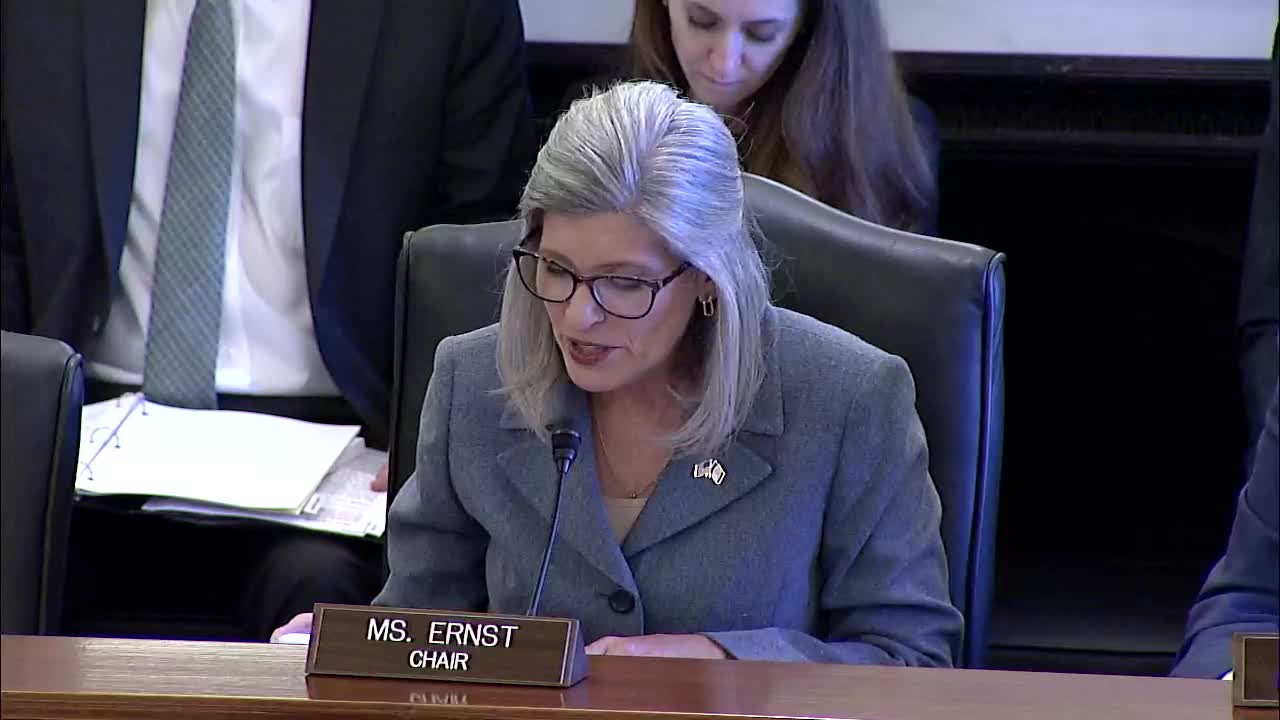Senate Hearing Confirms William Kirk as SBA Inspector General Amid Partisan Controversy
September 10, 2025 | Small Business and Entrepreneurship: Senate Committee, Standing Committees - House & Senate, Congressional Hearings Compilation
This article was created by AI summarizing key points discussed. AI makes mistakes, so for full details and context, please refer to the video of the full meeting. Please report any errors so we can fix them. Report an error »

The recent Senate Committee on Small Business and Entrepreneurship meeting highlighted the nomination of William Kirk as Inspector General of the Small Business Administration (SBA), a position critical for ensuring accountability within the agency. Kirk, who previously served as deputy counsel at the Environmental Protection Agency's Office of Inspector General, received praise for his dedication and integrity during his tenure. His nomination comes at a time when the role of inspectors general is under scrutiny, particularly following the controversial dismissal of several inspectors general by former President Trump earlier this year.
During the meeting, committee members expressed their concerns regarding the implications of Kirk's nomination. Ranking member Ed Markey raised significant issues about the previous administration's actions, claiming that the dismissal of inspectors general, including the SBA's former IG Mike Ware, undermined nonpartisan oversight. Markey emphasized that Ware was known for his effective and independent investigations, which held both the Trump and Biden administrations accountable.
Markey's remarks also pointed to a broader pattern of appointing loyalists to key oversight positions, suggesting that Kirk's nomination might continue this trend. He questioned Kirk's independence, citing his previous political roles and actions that appeared to align with partisan interests. Markey argued that inspectors general should remain impartial and not support any single party's agenda.
As the committee moves forward with Kirk's nomination, the discussions reflect a growing concern about the integrity of oversight within federal agencies. The outcome of this nomination could have lasting implications for the SBA and its ability to serve small businesses effectively. The committee's decision will be closely watched by those invested in maintaining accountability and transparency in government operations.
During the meeting, committee members expressed their concerns regarding the implications of Kirk's nomination. Ranking member Ed Markey raised significant issues about the previous administration's actions, claiming that the dismissal of inspectors general, including the SBA's former IG Mike Ware, undermined nonpartisan oversight. Markey emphasized that Ware was known for his effective and independent investigations, which held both the Trump and Biden administrations accountable.
Markey's remarks also pointed to a broader pattern of appointing loyalists to key oversight positions, suggesting that Kirk's nomination might continue this trend. He questioned Kirk's independence, citing his previous political roles and actions that appeared to align with partisan interests. Markey argued that inspectors general should remain impartial and not support any single party's agenda.
As the committee moves forward with Kirk's nomination, the discussions reflect a growing concern about the integrity of oversight within federal agencies. The outcome of this nomination could have lasting implications for the SBA and its ability to serve small businesses effectively. The committee's decision will be closely watched by those invested in maintaining accountability and transparency in government operations.
View full meeting
This article is based on a recent meeting—watch the full video and explore the complete transcript for deeper insights into the discussion.
View full meeting